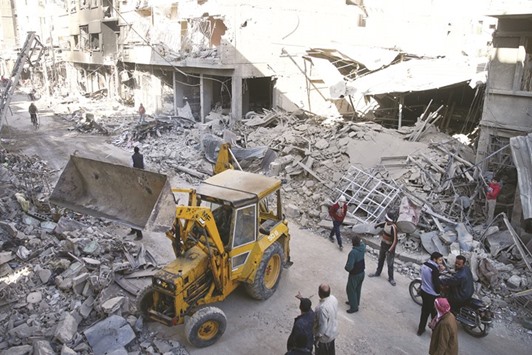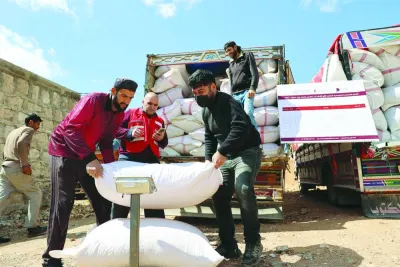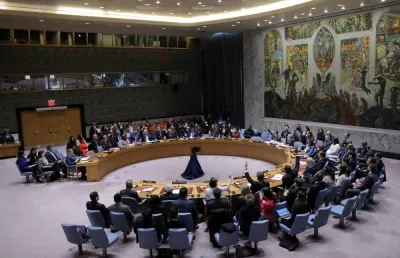Streets were deserted and residents took refuge indoors as the government unleashed a fourth straight day of bombardment on opposition-controlled parts of Syria’s second city.
The artillery fire was the most intense in east Aleppo in around two years, AFP’s correspondent there said, while rescue workers said it was too dangerous to move around bomb-scarred neighbourhoods.
“I have never heard such intense artillery bombardments,” said Najib Fakhoury, head of the White Helmets volunteer rescue group in the rebel-held Ansari district.
“Earlier, we received a call for help to extinguish a fire,” he said. “But we cannot go because the shells are falling on the streets.”
Aleppo has been ravaged by some of the worst violence of the five-year war, which has displaced more than half the county’s population and killed more than 300,000 people.
President Bashar al-Assad’s Russian-backed government has carried out several bombing campaigns this year but has failed to dislodge the rebels from east Aleppo, where more than 250,000 residents are under army siege.
Barrel bombs and other ordnance rained down until midnight only to resume early yesterday, an AFP correspondent reported.
Shells and rockets were heard hitting several east Aleppo districts.
Regime helicopters dropped barrel bombs — crude unguided explosive devices whose use has been denounced by international rights groups because they kill indiscriminately.
The bombardment came as government troops pressed an assault on the southern neighbourhood of Sheikh Said, which they briefly entered before being pushed back by rebels, the Syrian Observatory for Human Rights said.
The rebels riposted by firing more than a dozen rockets into government-held areas of the city, the Britain-based monitoring group added.
State media said the rocket fire killed five people including two girls.
At least 65 civilians have been killed since the offensive resumed on Tuesday, according to the Observatory, which relies on a network of sources inside Syria for its information.
The bombardment ended a period of relative respite, particularly in east Aleppo, where Moscow halted air strikes on October 18 ahead of several brief ceasefires.
The ceasefires were intended to encourage residents and surrendering rebels to leave the east, but few did so.
Once the country’s main commercial and industrial hub, Aleppo has been devastated by fighting since the rebels overran the city’s east in 2012.
The rebels have been besieged by the army since July, and aid agencies say food stocks in the sector are virtually exhausted.
Syria expert Thomas Pierret said regime forces “intended to combine air strikes with famine resulting from the siege to get rebels to surrender”.
“Aleppo is now completely besieged and its residents are starting to die of hunger,” he said. Fabrice Balanche, a Syria expert at the Washington Institute for Near East Policy, said Damascus and its allies wanted to retake east Aleppo before US president-elect Donald Trump takes office.
“Russia, Damascus and Teheran want to retake east Aleppo quickly. The United States is paralysed. Trump needs to be presented with a fait accompli in January,” he said.
The 1.2mn civilians living in government-held areas have come under repeated rebel rocket fire that has killed dozens.
Russia, which intervened in Syria in September 2015 in support of Assad’s regime, claimed on Wednesday it had not carried out any raids on Aleppo since October 18.
Instead it has concentrated its strikes in the northern province of Idlib, controlled by an alliance of rebels and militants.
Russian and Syrian aircraft continued to bomb several cities and towns in Idlib yesterday, the AFP correspondent in the province said.
Regime artillery fire also hit the besieged rebel-held town of Douma, east of Damascus.
The head of the global watchdog tasked with destroying chemical weapons, meanwhile, said yesterday it is probing more than 20 reports of the alleged use of toxic arms in Syria since August. A joint investigation by the United Nations and the Organisation for the Prohibition of Chemical Weapons (OPCW) has found regime forces carried out three chlorine gas attacks in 2014 and 2015, and IS was behind a mustard gas attack in August 2015.
OPCW chief Ahmet Uzumcu said he believed IS may have itself manufactured mustard gas used in Syria and Iraq, in an “extremely worrying” development.
.



